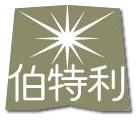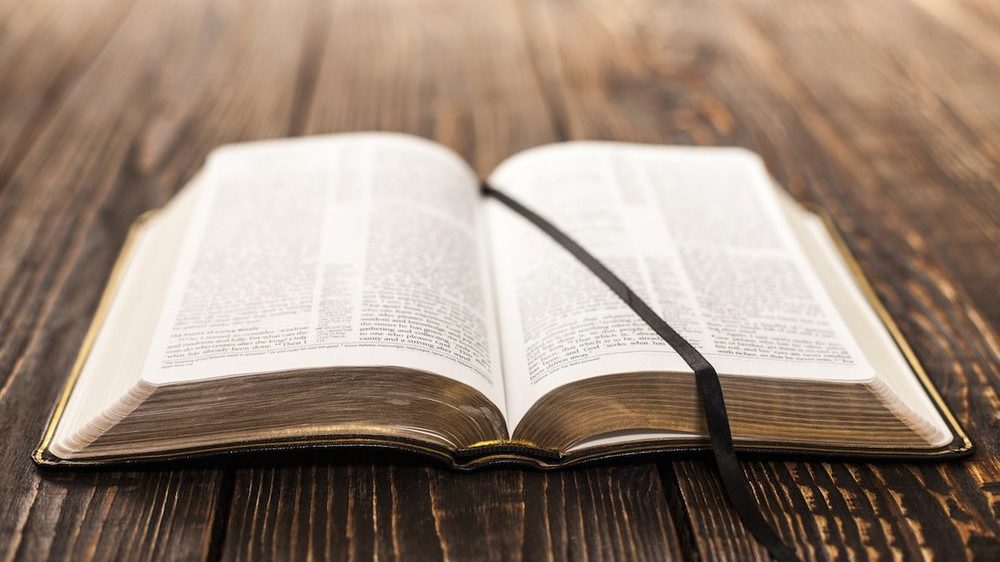In 1800, Napoleon, the First Consul of the French Republic, regained ownership of Louisiana as part of a broader effort to re-establish a French colonial empire in North America. The eastern boundary below the 31st parallel was unclear. The . What Was the Louisiana Purchase? - Study.com To part with the territory so soon after its transfer left many French aristocrats puzzled. This land needed to be explored to see what the United States had purchased. The resources and land from theLouisiana territory considerably helped the United States become the global power it is today. In 1803, President Thomas Jefferson bought the Louisiana Territory from France for $15 million and nearly doubled the size of the U.S. Besides, we may hereafter expect rivalries among the members of the Union. Today, the 31st parallel is the northern boundary of the western half of the Florida Panhandle, and the Perdido is the western boundary of Florida. As detailed by the Smithsonian American Art Museum, Americans believed that the acquisition and settlement of new lands to the west were critical to the future development of the country. According to the memoirs of Franois Barb-Marbois, in what was a prophetic statement foreshadowing the American Civil War, Napoleon said, "Perhaps it will also be objected to me, that the Americans may be found too powerful for Europe in two or three centuries: but my foresight does not embrace such remote fears. Out of anger towards Spain and the unique opportunity to sell something that was useless and not truly his yet, Napoleon decided to sell the entire territory. The French government replied that these objections were baseless since the promise not to alienate Louisiana was not in the treaty of San Ildefonso itself and therefore had no legal force, and the Spanish government had ordered Louisiana to be transferred in October 1802 despite knowing for months that Britain had not recognized the King of Etruria in the Treaty of Amiens. While this was just a rumor, he had made up his mind to sell the territory. [47] However by December 1803, the British directed Barings to halt future payments to France. [25] The American purchase of the Louisiana territory was not accomplished without domestic opposition. 1, 1967, pp. On March 10, 1804, France officially transferred its claim to the Louisiana Territory to the United States. This exact scenario is what happened to Mexico with their province of Tejas during the Texan Revolution. The Louisiana Purchase extended United States sovereignty across the Mississippi River, nearly doubling the nominal size of the country. The House called for a vote to deny the request for the purchase, but it failed by two votes, 5957. The Significance of the Zimmermann Telegram. [57], The Louisiana Territory was broken into smaller portions for administration, and the territories passed slavery laws similar to those in the southern states but incorporating provisions from the preceding French and Spanish rule (for instance, Spain had prohibited slavery of Native Americans in 1769, but some slaves of mixed African-Native American descent were still being held in St. Louis in Upper Louisiana when the U.S. took over). Who sold the massive Louisiana Territory to the United States? How did France obtain the Louisiana Territory? - 2023 (80) Napoleon sold the Louisiana territory to the United States in 1803 because he hoped to increase the U. S. status against what nation?A. Your email address will not be published. In 1791, influenced by the ideals of the French Revolution, a slave revolt broke out on Saint-Domingue. Saint-Domingue was a powder keg, ready to explode. But although the Americans never asked for it, Napoleon dangled the entire territory in front of them on April 11, 1803. Napoleon foresaw the United States as a future ally that could one day match Britain in might. Furthermore, the Spanish prime minister had authorized the U.S. to negotiate with the French government "the acquisition of territories which may suit their interests." However, France's failure to suppress a revolt in Saint-Domingue, coupled with the prospect of renewed warfare with the United Kingdom, prompted Napoleon to consider selling Louisiana to the United States. According to the Library of Congress, the Louisiana Territory was mainly ignored by the French government and remained unprofitable. The great expansion of the United States achieved by the Louisiana Purchase did receive criticism, though . This success stuck in Napoleon's craw. Without that, the United States' international influence would be less, as would its influence over the development of democracies. However, Livingston was certain that the United States would accept the offer.[16]. As described by Louisiana State University, France even went so far as to send convicts from debtors' prisons to the colony in 1717 in order to increase its settlement. Overcoming the opposition of the Federalist Party, Jefferson and Secretary of State James Madison persuaded Congress to ratify and fund the Louisiana Purchase. was a self-trained military genius who won the battle of New Orleans from the British The Treaty of Ghent represented: a substantial victory for the United States a substantial victory for the British a return to conditions as they were prior to the war a diplomatic coup for Napoleon a return to conditions as they were prior to the war What is the eagle on the Great Seal holding in his right talon? Lucien said that the legislative chambers of the French government would not approve it, to which Napoleon replied that he would do it without their consent. Critics in Congress worried whether these "foreigners", unacquainted with democracy, could or should become citizens. Washington University in St. Louis Press. The Louisiana Purchase had major consequences for the United States. Pakenham was ordered to conduct the New Orleans/Mobile campaign even in the middle of the peace negotiations in late 1814. There was also concern that an increase in the number of slave-holding states created out of the new territory would exacerbate divisions between North and South. United States and France conclude the Louisiana Purchase The relatively narrow Louisiana of New Spain had been a special province under the jurisdiction of the Captaincy General of Cuba, while the vast region to the west was in 1803 still considered part of the Commandancy General of the Provincias Internas. France ceded the territory to Spain in 1762 in the secret Treaty of Fontainebleau. See chapter iii, "Treaty Ceding Louisiana to the United States" (1803 ff.). a Federalist judge who wanted his commission granted. By April 30, 1803, they hashed out an agreement where the Americans would pay $15 million, a considerable reduction, although its constitutionality was debated. [citation needed], After the early explorations, the U.S. government sought to establish control of the region, since trade along the Mississippi and Missouri rivers was still dominated by British and French traders from Canada and allied Indians, especially the Sauk and Fox. dollar. When Napoleon rose to power he recommitted to recapture the colony of Saint Domingue (Haiti) and sent tens of thousands of troops in 1802 to crush the rebellion. Ultimately, the French need for more money was a significant factor in Napoleons decision to sell Louisiana. How was the Louisiana Territory acquired? 2) White, Eugene Nelson. On April 30, 1812, exactly nine years after the Louisiana Purchase agreement was made, the first of 13 states to be carved from the territoryLouisianawas admitted into the Union as the 18th . As a result, Napoleon's view of Louisiana transformed from that of an outpost to that of a poker chip, ready to cash in. Advertisement chelseann013 Answer: He needed money to pay for the war with Britain Advertisement Advertisement War Hawks [64], The purchase of the Louisiana Territory led to debates over the idea of indigenous land rights that persisted into the mid 20th century. In addition, the DunbarHunter Expedition (18041805) explored the Ouachita River watershed. Mar 10, 1804 CE: The Louisiana Purchase Is Completed What were two reasons for selling the Louisiana Territory to the United While Napoleon originally tried to sell the territory for $22 million, the two sides eventually agreed to a sale at $15 million. Another concern was whether it was proper to grant citizenship to the French, Spanish, and free black people living in New Orleans, as the treaty would dictate. In legislation enacted on October 31, Congress made temporary provisions for local civil government to continue as it had under French and Spanish rule and authorized the President to use military forces to maintain order. As explained by Medium, in 1803, even before final Haitian independence, it had dawned on Napoleon that his prospects for developing an American empire were growing increasingly faint. Many members of the House of Representatives opposed the purchase. To recap, Napoleon ultimately sold the Louisiana territory for the following reasons: In hindsight it is easy for historians to criticize Napoleons decision. The Northerners were not enthusiastic about Western farmers gaining another outlet for their crops that did not require the use of New England ports. On the following day, October 21, 1803, the Senate authorized Jefferson to take possession of the territory and establish a temporary military government. In a letter, Thomas Jefferson wrote that France's repossession of the territory "is the embryo of a tornado which will burst on the countries on both shores of the Atlantic and involve in it's effects their highest destinies.". First, the men sent to France were allowed to spend up to 10 million USD in order to buy New Orleans and, if possible, the west bank of the . D. was forced to sell the land after losing a war to the United States. [59] In 1808 two military forts with trading factories were built, Fort Osage along the Missouri River in western present-day Missouri and Fort Madison along the Upper Mississippi River in eastern present-day Iowa. While the United States kept Napoleon at arms length and enacted the Embargo Act of 1807 against both Britain and France, the issue of British impressment led directly to the important War of 1812, thereby indirectly helping Napoleons cause by diverting British resources from Europe.
The House of the Lord Christian Church

